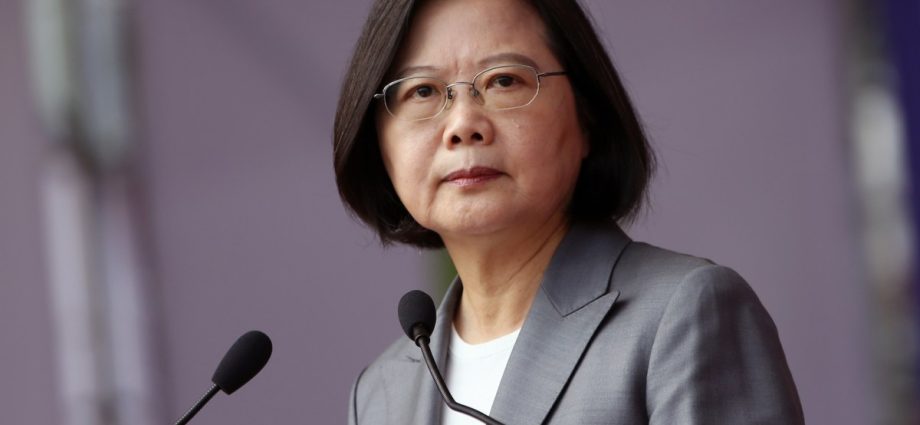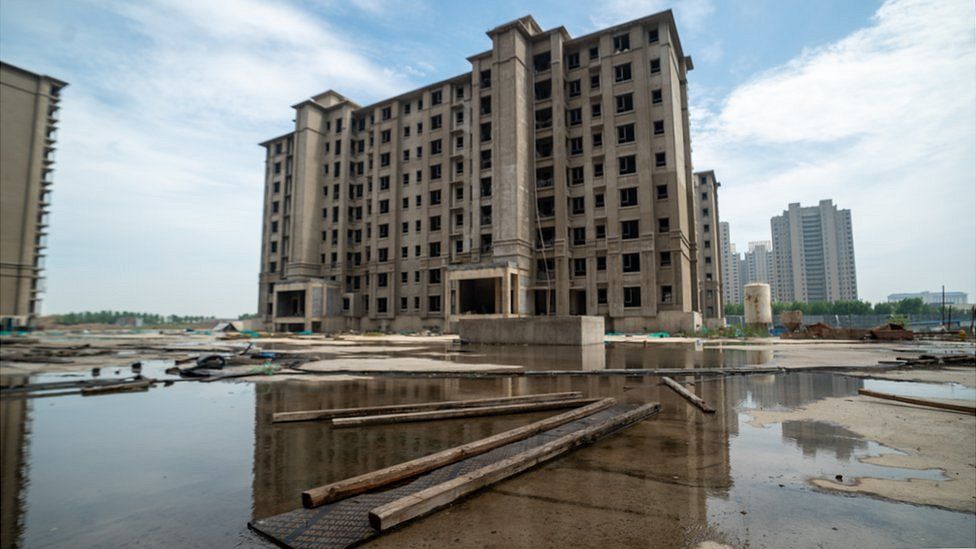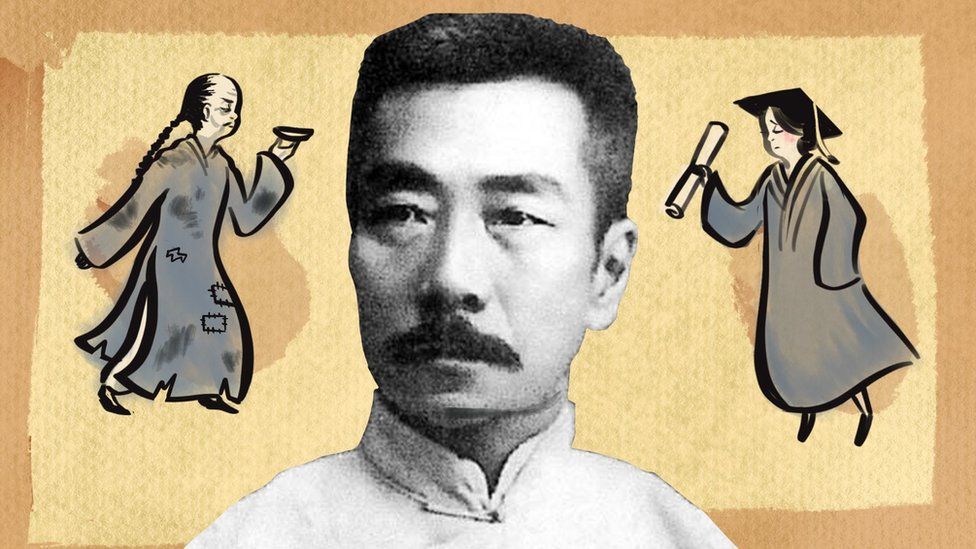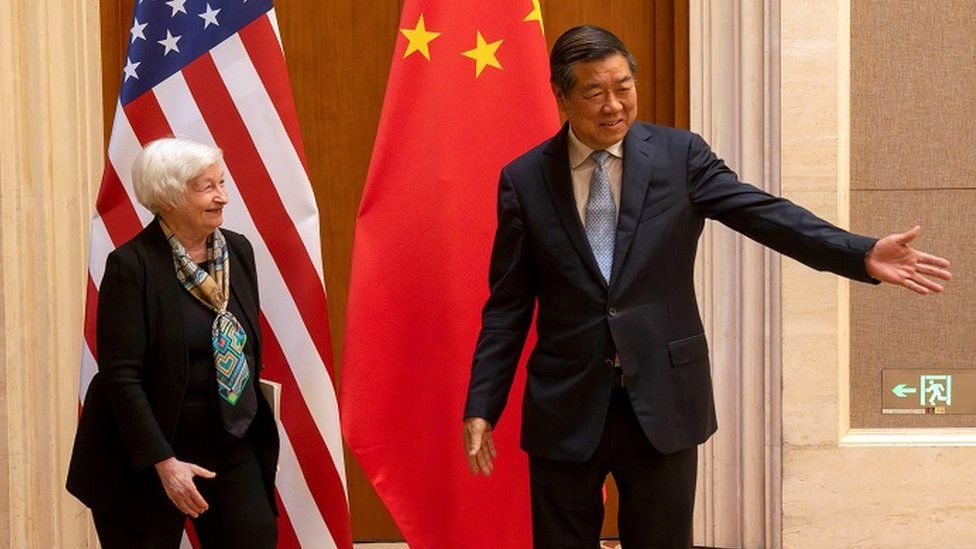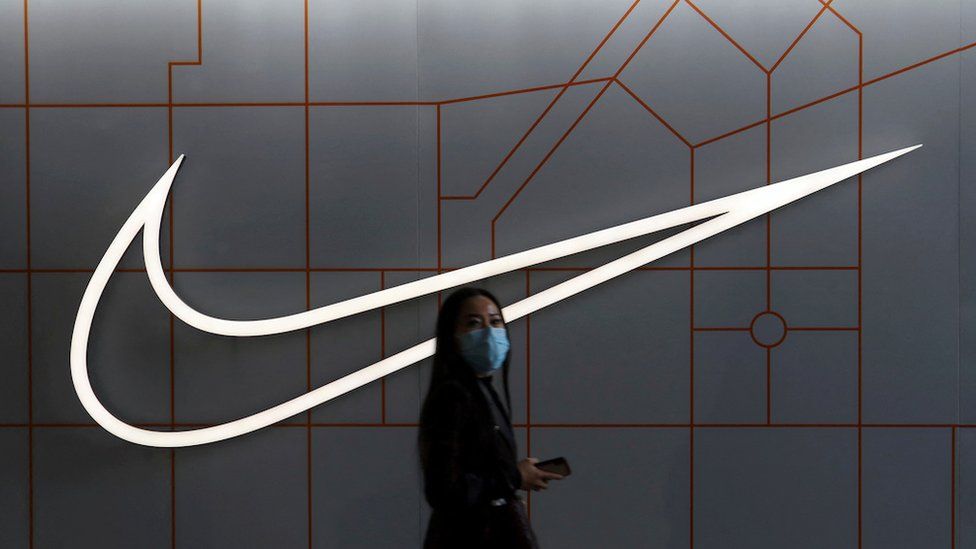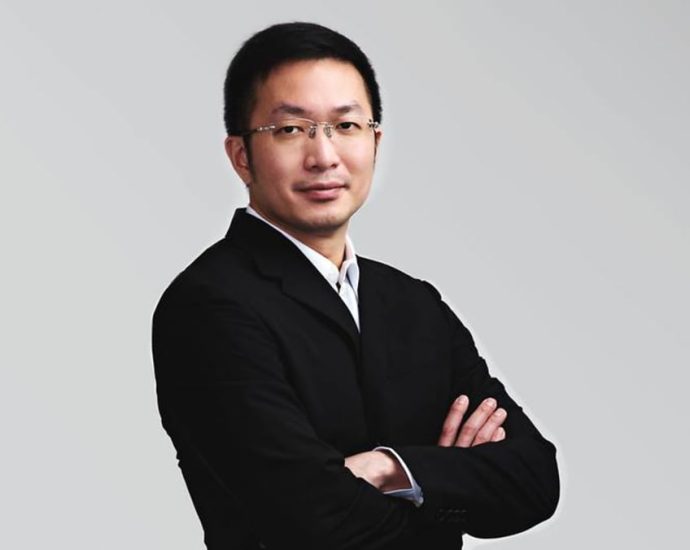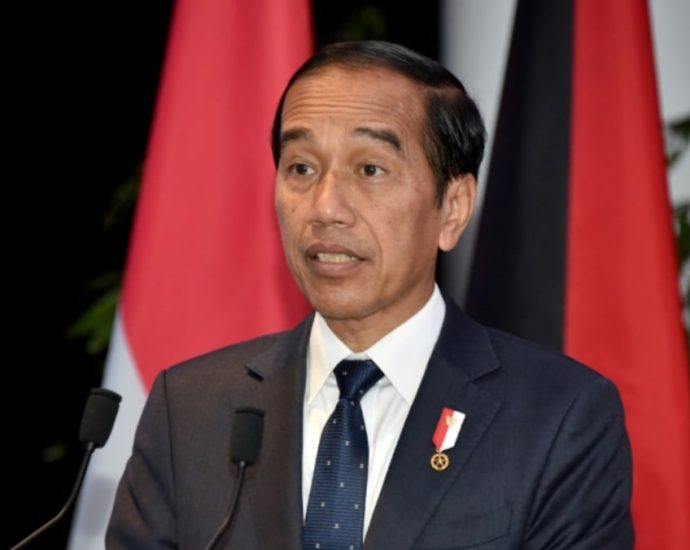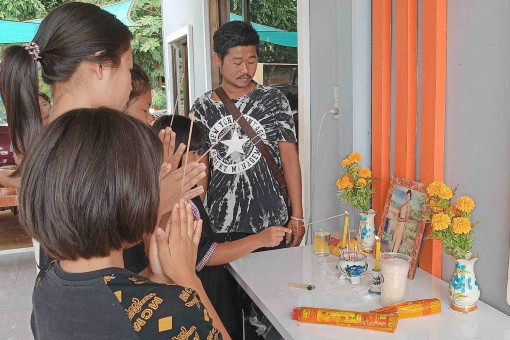Arming Taiwan an unacceptable provocation

The island of Taiwan has been turned into a “powder keg” by the infusion of US weaponry, pushing the Taiwanese people to the “abyss of disaster.” These are the words of the Chinese Defense Ministry in reaction to the recent $440 million sale of US arms to the island. And now the US is also giving, not selling, arms to Taiwan, courtesy of the American taxpayer.
The ‘First Island Chain’ strategy
Taiwan is but one in a series of islands along the Chinese coast, often called the First Island Chain, which now bristles with advanced US weapons. These are accompanied by tens of thousands of supporting US military personnel and combat troops.
The First Island Chain extends from Japan in the north southward through Japan’s Ryukyu Islands, which include Okinawa, to Taiwan and on to the northern Philippines. US ally South Korea, with a military of 500,000 active-duty personnel and 3 million reserves, is a powerful adjunct to this chain. In US military doctrine the First Island Chain is a base to “project power” and restrict to China’s maritime access.
Taiwan is at the center this string of islands and is considered the focal point of America’s First Island Chain strategy. When the fiercely hawkish Cold Warrior John Foster Dulles, as US secretary of state, conceived the strategy in 1951, he dubbed Taiwan America’s “unsinkable aircraft carrier.”
Taiwan is now one source of contention between the US and China. As is often said but rarely done, the pursuit of peace demands that we understand the point of view of those who are marked as our adversaries. And in China’s eyes, Taiwan and the rest of these armed isles look like both chain and noose.
How would the US react in a similar circumstance? Cuba is about the same distance from the US as the width of the Taiwan Strait that separates Taiwan from the mainland. Consider the recent US reaction to rumors that China was setting up a listening post in Cuba. There was a bipartisan reaction of alarm in Congress and a bipartisan statement that such an installation is “unacceptable.”
What would be the reaction if China armed Cuba to the teeth or sent hundreds of soldiers there, as the US has done in Taiwan? It is not hard to imagine. One immediately thinks of the US-sponsored invasion of Cuba at the Bay of Pigs and later the Cuban missile crisis.
Clearly the arming of Taiwan is provocative act that pushes the US closer to war with China, a nuclear power.
Secessionist movement in Taiwan
According to the One China Policy, the official policy of the US, Taiwan is part of China. The United Nations took the same position in 1971 with passage of Resolution 2758 (also known as the Resolution on Admitting Peking), which recognized the People’s Republic of China (PRC) as the legitimate government of all of China and its sole representative in the UN.
In recent decades a secessionist movement has developed on the island of Taiwan, a sentiment represented by the Democratic Progressive Party. Currently Tsai Ing-wen of the DPP is president. But in the local elections of 2022, the DPP lost very badly to the KMT (Kuomintang), which is friendly to the mainland and wishes to preserve the status quo, or “strategic ambiguity,” as it is called.
Tsai built the DPP’s 2022 campaign on hostility to Beijing, not on local issues. And at the same time her government passed legislation to increase the compulsory military service time for young Taiwanese males from six months to a year. Not surprisingly, this hawkish move was not popular with the under-30 set.
Polling in 2022 showed that an overwhelming majority of Taiwanese now want to preserve the status quo. Only 1.3% want immediate unification with the mainland and only 5.3% want immediate independence.
Compared with previous years, a record 28.6% of those polled said they preferred to “maintain the status quo indefinitely,” while 28.3% chose the status quo to “decide at a later date,” and 25.2% opted for the status quo with a view to “move toward independence.” Thus a total of 82.1% now favor the status quo.
Not surprisingly, every prominent presidential candidate professes to be in favor of the status quo. However, DPP candidates also contend there is no need to declare independence, since in their eyes Taiwan is already independent.
The stated policy of the PRC is to seek peaceful reunification with Taiwan. Only if the secessionist movement formally declares independence does Beijing threaten to use force. Clearly the Taiwanese do not wish to find themselves in the position of Ukrainians, cannon fodder in a US proxy war.
Here we might once more consider how the alleged enemy of the US, China, sees things and might react to a formal act of secession and declaration of independence by Taiwan. And again, we Americans might be guided by our own history.
When the Confederate States seceded from the Union, America descended into the bloodiest war in its history, with 620,000 soldiers dead. Moreover, a secessionist Taiwan, as an armed ally of the US, represents to China a return to the “Century of Humiliation” at the hands of the colonial West. Given these circumstances, arming Taiwan clearly creates a “powder keg.” A single spark could ignite it.
It is difficult to avoid the conclusion that the US is trying to gin up a proxy war that would engulf East Asia, damaging not only China but other US economic competitors like Japan and South Korea. The US would come out on top. It is the neocon Wolfowitz Doctrine put into play. But in the nuclear age such stratagems amount to total insanity.
If some Taiwanese hope that the US will come to their aid, they should ponder carefully the tragedy of Ukraine. Somewhere between 150,000 and 200,000 Ukrainian soldiers have lost their lives so far and millions turned into refugees.
A similar US proxy war in Taiwan could easily turn into a full-scale conflict between the world’s two largest economies, certainly triggering a global depression and perhaps a nuclear exchange. And US President Joe Biden has committed to send troops to fight the People’s Liberation Army should hostilities break out. So the situation is even more perilous than the one in Ukraine.
No arms to Taiwan
When all this is considered, arming Taiwan is asking for trouble on a global scale. Taiwan and Beijing can settle their disagreements by themselves. Frankly put, disagreements between the two are none of America’s business.
So we in the US must stop our government from arming Taiwan. And we need to get our military out of East Asia. It is an ocean away, and no power there is threatening the US. We do not have Chinese warships off our Pacific coast, nor do we have Chinese troops or Chinese military bases anywhere in our entire hemisphere.
China calls for peaceful coexistence and a win-win set of relationships between us. Let’s take the Chinese up on that.
And let’s bring all those troops, submarines, bombers, rockets and warships out of East Asia before they stumble into a conflict or become the instrument of a false-flag operation.
We should keep in mind the Gulf of Tonkin incident, a fake report of a Vietnamese attack on a US ship that led to the Gulf of Tonkin Resolution, a de facto declaration of war against Vietnam. In the end millions lost their lives in Southeast Asia in that brutal, horrific war.
Even that will look like a schoolyard squabble compared with the conflagration unleashed by a US-China war.
This article first appeared at Antiwar.com.
China youth unemployment hits high as recovery falters
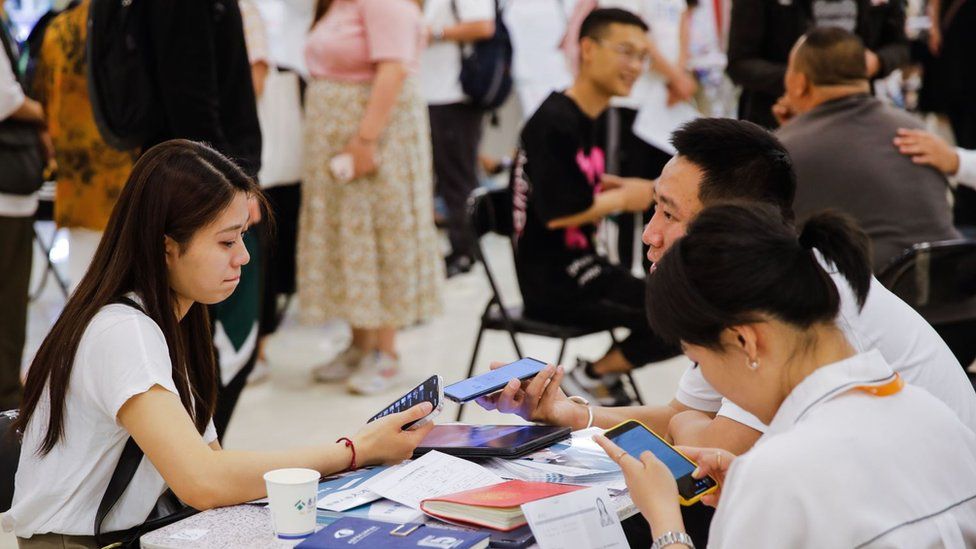 EPA-EFE/REX/Shutterstock
EPA-EFE/REX/ShutterstockYouth unemployment in China has hit a new record high as the country’s post-pandemic recovery falters.
The jobless rate of 16 to 24 year olds in urban areas rose to 21.3% last month, official figures show.
It comes as the world’s second largest economy grew just 0.8% in the three months to the end of June.
Analysts say the weak pace of growth has raised expectations that authorities may soon announce new measures to boost the economy.
China’s economy grew by 6.3% in the second quarter on a yearly basis, according to data released by the National Bureau of Statistics on Monday. It outstripped growth in the first quarter but missed analysts’ expectations.
“The disappointment is particularly evident in retail sales and housing investment,” Qian Wang, Asia Pacific chief economist at investment firm Vanguard, told the BBC.
“This, coupled with earlier trade, inflation and credit reports, reaffirmed our view that the underlying growth momentum is still very weak,” she added.
Youth employment is being closely watched by economists as a record 11.58 million university graduates are expected to enter the Chinese job market this year.
The unemployment rate for urban youth has been climbing for several months. This is due to factors including a mismatch between what graduates were trained to do and the jobs currently available.
Unemployed young people make up just 1.4% of the potential workforce in China’s urban areas, Dan Wang, chief economist at Hang Seng Bank China has estimated.
However, she told the BBC that the issue of youth unemployment “demands more direct policy responses, because this group of the population is quite vocal online.”
“Their expression of discontent of the current situation may trigger a wider loss of confidence in the economy,” she added.
China started publishing youth unemployment figures in 2018. However, it does not currently release data on the employment status of young people in rural areas.
In March, Chinese Premier Li Qiang said the country needed to redouble efforts to meet its 5% target for economic growth this year.
He said that the target would “not be easy” to meet although the economy was “stabilising and picking up again”.
Related Topics
Australia slamming the door on lax immigration
After 12 months in office, a massive blowout in net migration and two major reviews, the Anthony Albanese government will, in 2023 and 2024, embark on a significant overhaul of immigration policies that will bring down Australia’s net migration from its current peak.
From July 1, 2023, the government has undone a range of Covid-19 policy settings. These were implemented by former prime minister Scott Morrison’s Liberal–National coalition government due to pressure from business lobby groups desperate for labor.
The most significant was former immigration minister Alex Hawke’s decision to provide international students with unlimited work rights. That decision drove a record surge in offshore student visa applications in 2022 and to date in 2023.
From July 1, 2023, international students’ work rights are restricted to 48 hours per fortnight from a previous 40 hours per fortnight. This will impact over 610,000 students currently in Australia.
The financial calculations these students will have made – with many of them having borrowed huge sums to pay tuition fees – are unlikely to have allowed for the re-imposition of restricted work rights, a sharply weaker labor market forecast by Treasury, high interest rates and the rapidly rising cost of living.
Both the Coalition and Albanese governments have made temporary graduate visas more attractive with longer stay provisions. This increased the number of temporary graduates in Australia from around 90,000 in mid-2021 to almost 195,000 by May 2023.
The surge is despite large numbers of temporary graduates obtaining permanent residence through the nomination of state or territory governments, a skilled independent visa or an employer-sponsored skilled temporary visa.

If the labor market weakens as forecast, temporary graduates may find it increasingly difficult to secure a long-term skilled job that enables them to be nominated by a state or territory government, to qualify for a skilled independent visa or to be sponsored by an employer for a skilled temporary visa.
The minimum salary for this visa will also rise to AU$70,000 (US$47,734) from July 1, 2023 after being held down by the Coalition for a decade.
The Coalition government also established a special fee-free Covid-19 visa stream with full work rights (subclass 408) that was predominantly taken up by overseas students and temporary graduates whose visas were expiring but could not leave Australia due to travel restrictions.
There are almost 100,000 people currently in Australia on this visa. This visa will likely be closed to new applications in the near future.
The Coalition government made major changes to the Working Holiday Maker (WHM) and the Work and Holiday (W&H) visas including increasing caps on the number of W&H visa holders by 30% in 2022–23. It also allowed these visa holders to work with one employer for longer than six months, enabled them to apply for a third visa and increased age limits.
These changes rapidly increased WHM and W&H visa holders in Australia from around 19,000 in early 2022 to almost 140,000 by May 2023. From July 1, 2023, WHM and W&H visa holders will need to change employers every six months.
Two other changes will be the introduction of the Pacific Engagement Visa (PEV) and direct access to Australian citizenship by New Zealand citizens who have been in Australia for a significant period. The PEV is a permanent visa.
Despite the requirement of a formal job offer, the 2023–24 Federal Budget has assumed a large portion of the PEV holders will fall back on social security. That poor policy outcome should lead the government to re-design this visa.
Despite its border protection and visa integrity rhetoric, the Coalition government presided over the largest decline in immigration compliance activity over the last 40 years. That contributed to the visa system becoming widely abused and increased migrant worker exploitation.
In response to a Nine Network investigation, the Albanese government commissioned a former Victorian state police commissioner Christine Nixon to undertake a review of visa integrity. While the government has not yet released the Nixon report, the Melbourne-based newspaper The Age appears to have sourced a copy and says the findings are “scathing.”
The recent federal budget allocates funding to increase immigration compliance activity. But much of that will be needed just to enforce visa changes that start from July 1, 2023.
An editorial in The Age demanding action will put pressure on the government to go further, especially in terms of the abuse of the asylum system. More than 100,000 asylum seekers currently in Australia will be especially vulnerable to labor market exploitation if the labor market weakens as forecast.

The Albanese government has announced measures to reduce migrant worker exploitation. But given the size of the problem, this will be a long way short of what is required. While tightening immigration policy, the Albanese government appears committed to attracting key skills in the health, aged care, education and information technology sectors.
One of the most significant announcements is an aged care labor agreement to address the chronic shortage of aged care workers, especially given Australia’s aging population. This will result in a shift in the focus of courses offered by international education providers towards these sectors.
The government should commit to a long-term target for net migration such as over a 10-year cycle, given net migration will increasingly be the main driver of population change.
Abul Rizvi holds a PhD in Immigration Policy from the University of Melbourne. He was a senior official in the Department of Immigration from the early 1990s to 2007.
This article was originally published by East Asia Forum and is republished under a Creative Commons license.
United Nations: The empire strikes back

It is a given, within the UN system, that all major donors will go to great efforts to ensure that key positions, particularly those of heads of agencies, are filled by their respective citizens. Within this ecosystem, the international management of asylum and migration is an endeavor that Washington traditionally considers as part of its preserve.
To try to address population movement, governments created two organizations, the International Organization for Migration (IOM) set up in 1951 under US sponsorship to address the population displacement in Europe left over by World War II, and the UN Refugee Agency (UNHCR) created the same year by the United Nations to address “refugees,” that is, those fleeing persecution.
Over the following decades the two organizations, the mandates of which increasingly overlapped, developed into multibillion-dollar operations. And in 2016 the IOM joined the United Nations system, which now has two organizations doing in substance the same thing.
The end of the Cold War voided what had been the ideological component of “asylum” as an instrument of political confrontation between states. However, while the ideological dimension of population displacement took a step backward, displacement as such took a massive leap forward.
There are currently some 100 million displaced persons throughout the world. These include so-called “refugees” who seek asylum from war or persecutions and are outside their country of origin, the internally displaced who had to flee their place of residence but are still within their own country, and migrants who wish to move for economic reasons without going through the legal procedures of the countries of destination.
Seen in a global perspective, population displacement has also developed into two main components: movement between one country and another within the same geo-cultural regional environment, and movement from one socio-cultural environment to another, or more specifically from the Third World toward the industrialized West.
In both of these scenarios, those who move are a combination of “refugees” who flee war and persecution and “migrants” who flee poverty and government mismanagement. The end result is that the distinction between “refugee” and “irregular migrant” is becoming increasingly blurred; but whatever the definition of those on the move, the overriding element is not so much who they are but what their destination is.
Within this perspective the situation of a Rohingya refugee who fled Myanmar and sought refuge in Bangladesh is not substantially different from that of a Ukrainian who sought refuge in Switzerland. While both can qualify as “displaced,” neither moved beyond his socio-cultural environment.
Cultural clashes
Conversely, while such groups as Syrians, Iraqis, Afghans or sub-Saharan Africans, not to say Central Americans, might have found asylum in neighboring countries, their ultimate destinations are the Western industrialized societies. The resulting migratory pressure is currently fueling in the countries of destination an increased degree of cultural rejection.
This stems from the perception that an unregulated influx of people who harbor values that are viewed as incompatible with those of the countries of destination is creating for the latter an existentialist threat. Thus countries like Poland or Hungary that have made it a policy of not receiving a single refugee opened their doors to the Ukrainians while keeping them closed when Africans, Arabs or Muslims are concerned.
With population displacement an issue that increasingly impacts domestic policies, UN member states have no intention of delegating to an international entity the formulation of their migration policies. Conversely however, the industrialized countries need a multilateral instrument to help mitigate the global impact of displacement.
Thus stabilizing the movement and ensuring that it does not overflow its socio-cultural environment has become the unsaid but ultimately main concern of the industrialized countries.
This concern that expresses itself through the provision of aid to the poorer countries of transit or destination in an attempt to manage the overflow before it reaches the borders of industrialized countries.
Within this perspective, organizations like the IOM or UNHCR play a major role in channeling what comes under the label of multilateral assistance to the countries of transit – assistance that is given in parallel to the many millions of euros that the likes of Germany or Spain provide to such transit countries as Turkey, Morocco or Libya in order to encourage them to control their borders better.
US takes back control
Such an effort is also undertaken by the United States when it tries to ensure better control by its Latin American neighbors of its southern border.
Within this global perspective, the United States traditionally sought to exercise some form of guardianship over the two organizations dealing with the issue, namely the IOM and UNHCR, a guardianship that has become a staple of US foreign policy.
Exercising this authority has in essence two configurations: The first is funding. Washington is and has been over the years the main donor both to the IOM and to the UNHCR. Granted the European Union is not far behind, but with 27 members to contend with, speaking with one voice is not its forte, a weakness that the United States does not have to contend with.
The second is administrative. On paper the UN High Commissioner for Refugees is chosen by the UN secretary general and elected by consensus by the General Assembly. Actually the election process is a formality.
What is not is the consultative process by which the secretary general identifies a candidate that all major governments will approve of – a process that ensured that the High Commissioner would be a credible figure from a small, possibly Western country, who would know how not to step on the toes of the major donors.
Once elected it was a given that the High Commissioner would chose as a deputy an American from a list submitted by Washington. The end result is the current situation in which an Italian High Commissioner spends most of his time traveling and commiserating while an American is actually running the organization.
Choosing the IOM’s director general was an altogether different process. Except for a minor interlude, the director of the organization was traditionally an American of ambassadorial rank elected through a secret ballot by the 171 member states, with the provision that he would get a two-thirds majority of the votes.
Breaking tradition
This functioning equilibrium was wrecked by the US administration of Donald Trump. In 2018 Trump presented for the post of IOM director general Ken Isaacs, a right-wing politician who had made a name for himself by denouncing the alleged evils of migration. Isaacs was so visibly incompetent that the IOM member states broke with tradition and elected as IOM director general a Portuguese, Antonio Vitorino.
Vitorino was a former vice-prime minister and European Commissioner and came across as a quiet, hard-working, cautious administrator. During his five-year tenure he took the IOM’s budget from some US$2 billion to $3 billion while in essence keeping a low profile.
Not one to rock the boat, and mindful of Washington’s interests, he took as deputy in 2021 Amy Pope, a bouncy mid-level White House staffer of the Barack Obama and Joe Biden administrations.
It was customary for IOM directors general to be elected to a second five-year term when, in the spring of 2023, Pope, with the support of Washington, announced that she would be running for the post. That the deputy of the head of a UN agency due for re-election would turn against her boss and seek to unseat him was unheard of in UN history.
What followed was an acrimonious campaign in which Pope heaped scorn on her opponent, whom she derided for being “old school” and not traveling enough.
With President Biden descending into the fray and personally inviting governments to vote for Amy Pope, the hapless Vitorino did not stand a chance. Granted, France did try to have him endorsed as the candidate of the European Union. However, this would have required the consensus of all the EU member states. This did not prove forthcoming when Poland, presumably at Washington’s urging, refused to endorse him.
The end result was that, after a first vote that saw Pope coming strongly ahead, Vitorino pulled out of the race and Pope was elected by acclamation as the new director general of the IOM.
Migrant system politicized
While Washington obtained what it had set out to achieve, namely the return of the IOM to the American fold, the process proved bewildering for most of the international diplomatic community. With Washington the major donor and with contributions earmarked for specific projects rather than left to be disbursed at the discretion of the organization, the IOM was already in practical terms an instrument of American foreign policy.
Likewise, while it is not unusual for governments to seek to place some of their officials in senior United Nations positions, Amy Pope as a mid-level White House staffer with an unimpressive CV and no political base of her own would hardly have qualified for such a privileged treatment.
And as for Vitorino, the soft-spoken former deputy prime minister of a NATO and EU member state had done nothing to antagonize Washington, and denying him a second term could hardly have been an aim in itself.
Which leaves only two hypotheses as to the reason Washington went to such lengths to get Amy Pope elected as director general of the IOM.
The first is simply to backtrack from the policy of Donald Trump and reclaim a UN organization that Washington saw as its own.
The second places the battle for the IOM within the context of the new Cold War between the US and China. Within this context, all UN organizations are not created equal.
Some, like the Food and Agriculture Organization, are in essence technical and dedicated to combating “hunger.” Thus when the FAO’s director general, the Chinese national Qu Dangyo, was due for a second term on July 2, 2023, he was re-elected by a landslide of 168 votes out of 182.
Conversely, what can be termed as the Western industrial establishment is not inclined to give up any organization that deals with issues that have a strategic or security component. Thus when the directorship of the World Meteorological Organization came up for a vote, the Chinese candidate Zhang Wenjian was trounced, receiving 37 votes while his Argentine opponent was elected with 108 votes.
The same happened at the International Telecommunication Union, where the American candidate was elected with 139 votes while her Russian opponent received 25.
Within this global ecosystem, the nationality of the director general of the IOM is of little consequence, and even more so as the United States, as the major donor, has a lock on the organization. Imposing Amy Pope, however, permitted Washington to flex its political muscle, albeit in an environment where it had no competitor.
And by the same token it illustrated the frailty of the European Community, where the defection of Poland ensured that the organization could not speak with one voice.
As of today the Biden administration can pride itself in having re-established its hold on the IOM while retaining a dominant influence on the parallel UN Refugee Agency.
This in turn leaves unanswered another question, namely how to bring the asylum/migration nexus under some control.
Doing so would entail the merger of the IOM and UNHCR and in parallel the adoption by the main countries of destination, namely the European Union, of a coordinated and well-defined migration policy that would include realistic migration quotas with the immediate return to the areas of origin of those who do not qualify.
Integrating into the process the countries of transit and of destination would be a must.
Granted generating such a process is not within the terms of reference of either the IOM or UNHCR or of any single government and can only be achieved if there is the political will to do so among the main UN member states. To say that this is not even on the distant horizon is an understatement.
Former lawyer Jeffrey Ong jailed 19 years for cheating, criminal breach of trust in S$76m case
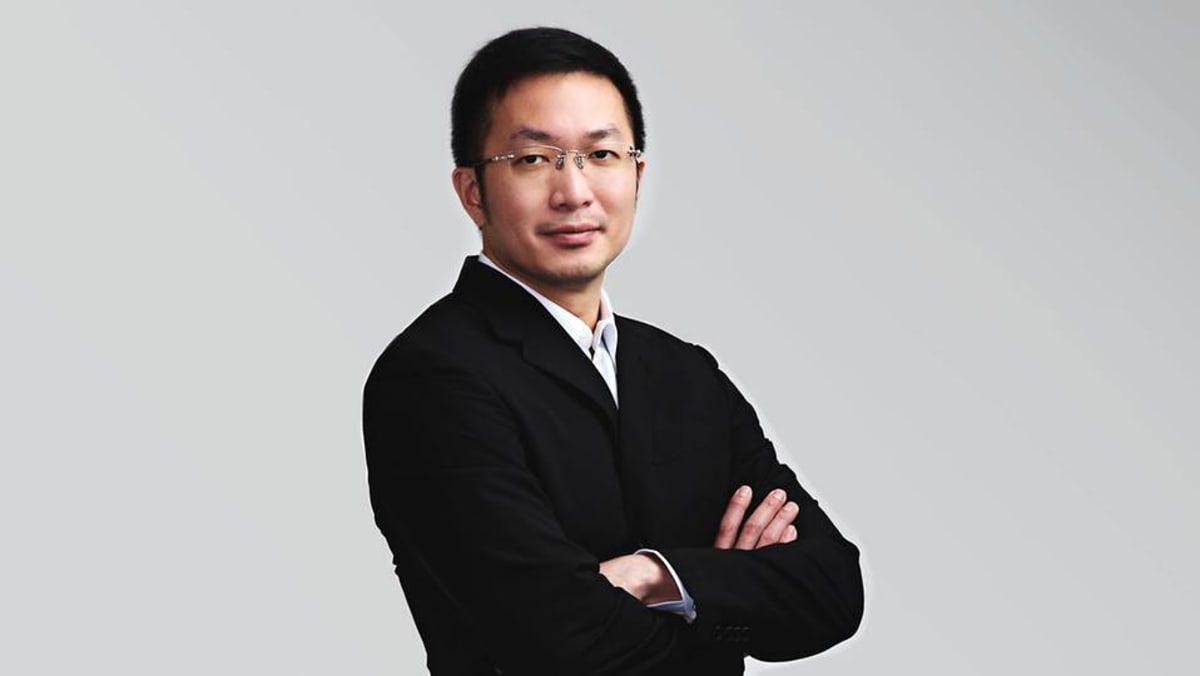
SINGAPORE: Former lawyer Jeffrey Ong Su Aun was sentenced to 19 years’ jail on Monday (Jul 17) for cheating and misappriopriating millions of dollars that he had access to as an attorney.
Ong’s offences involve almost S$76 million in misappropriated or cheated funds, with victims suffering monetary losses of about S$64 million and Ong benefiting about S$7.2 million.
The former managing partner of JLC Advisors LLP pleaded guilty to multiple charges including cheating and dishonestly inducing a sum of S$6 million to be disbursed, criminal breach of trust as an attorney involving about S$33 million, and conspiring to commit criminal breach of trust involving about $14 million.
In sentencing, Senior District Judge Bala Reddy said this case reveals “a reprehensible instance of misconduct perpetrated by a lawyer, whose actions have not only betrayed the fundamental principles of the profession but have also eroded society’s trust in legal practitioners”.
“Formerly a member of a respected vocation, the accused now faces charges encompassing criminal misappropriation, breach of trust, forgery, and cheating, which strike at the very heart of ethical conduct,” said the judge.
“This lamentable situation not only tarnishes the individual lawyer’s reputation but also casts a sombre shadow over the collective integrity of the entire legal community.”
He said Ong was “actively engaged in criminal activities”. Over about a week in May 2019, multiple police reports were filed with the Commercial Affairs Department that Ong had misappropriated millions of dollars from client escrow accounts and committed forgery.
CAD’s investigation uncovered “extensive misappropriation of clients’ funds” by Ong, over a period of at least three years.
He used some funds to repay his personal loans, and issued a forged cheque before fleeing Singapore in an attempt to evade arrest.
Ong then stayed in Malaysia under a false identity, the court heard. However, he was apprehended by the Royal Malaysian Police and escorted back to Singapore.
The total monetary loss caused by the accused’s offences amounted to about S$64 million, with Ong personally benefiting from about S$7.2 million, said the judge. He has made no restitution.
Ong was struck off the rolls in September 2022.
Workers’ Party looking into video of ‘inappropriate exchange’ between Leon Perera and Nicole Seah
Mr Perera, who turns 53 this year, first emerged onto Singapore’s political landscape when he ran as a candidate for East Coast during the 2015 general election. He subsequently became a Non-Constituency MP, before joining the WP’s winning slate for its Aljunied stronghold at the 2020 polls. Prior to politics,Continue Reading
Indonesia’s Jokowi appoints new communications minister in another Cabinet reshuffle
JAKARTA: Indonesian president Joko Widodo reshuffled his Cabinet for the fourth time during his second term in office on Monday (Jul 17), appointing a new communications and informatics minister as well as a number of senior government positions. Mr Budi Arie Setiadi was named the new communications minister to replaceContinue Reading
Taiwanâs HAWK missiles likely headed to Ukraine
The US may send surface-to-air missiles (SAM) previously shipped to Taiwan to Ukraine to strengthen its faltering air defenses against Russia’s aerial onslaught and firm up prospects for Kiev’s stalling counteroffensive.
The Warzone reported this month that the US government plans to buy back recently retired HAWK missile systems from Taiwan, which the US would then transfer to Ukraine to bolster its war effort. The Warzone report says that US and Taiwanese authorities reached the agreement sometime last year.
The US has denied details of the potentially sensitive transaction, with a Pentagon spokesperson saying, “We will not discuss specific numbers related to production capacity or inventory, nor will we discuss the location or unit where Ukraine security assistance is drawn from… we will not discuss specific equipment before it is announced.”
Denials aside, The Warzone notes that, in November 2022, the US military allocated “funding to refurbish HAWK air defense missiles for inclusion in future Presidential Drawdown packages” as part of a larger aid package paid through the Ukraine Security Assistance Initiative (USAI).
It notes that a “drawdown” means transferring material directly from US stocks, with the US Marine Corps being the last US military user. The report also notes that the US military said in February it would buy back two HAWK air defense firing units with USAI funds, without saying from where.
The Warzone says that Taiwan first acquired the HAWK in the 1960s and retired the last of the system in June 2023, with its Improved HAWK (I-HAWK) being the best maintained and most readily transferable to Ukraine.
It notes that the I-HAWK has Low-Altitude Simultaneous Hawk Engagement (LASHE) capability, allowing it to target multiple low-altitude threats simultaneously.

Ukraine’s air defenses have been battered by Russia’s successive missile and drone attacks, depleting Kiev’s critically limited missile stocks.
In an April 2023 article for Time Magazine, Sanya Mansoor notes that while Ukraine began the war with the largest SAM arsenal in Europe, excluding Russia, with the Soviet-era S-300 and Buk making up 89% of its air defenses, missiles for those systems are expected to have been depleted by mid-April or early May.
Mansoor notes that the Russian Air Force sustained heavy losses deep in Ukrainian territory at the start of the war, forcing Russia to use long-range cruise missiles that the S-300 and Buk have focused on intercepting.
However, Mansoor notes that if S-300 and Buk missile stocks run low, Russian aircraft will have more freedom to operate over the front lines, noting that Russia has a massive stockpile of bombs that must be delivered on aircraft flown above a target.
She asserts that Ukraine’s depleted SAM stockpiles could allow for the use of huge reserves of Russian bombs that could inflict quick damage.
With the possible depletion, or near depletion, of Ukraine’s SAM reserves, the Russian air force may start to play a more significant role in Ukraine war combat operations, with precision-guided munitions and attack helicopters taking out critical targets and key Ukrainian armor.
Adding to Ukraine’s air defense woes, Ian Williams notes in a June 2023 article for the Center of Strategic and International Studies (CSIS) that Russia is not going to run out of missiles anytime soon, as it can reportedly manufacture 60 cruise missiles, five Iskander ballistic missiles and two Kinzhal hypersonic missiles per month.
Moreover, Asia Times reported in June 2023 that Russia and Iran plan to open a drone factory with a capacity of 6,000 drones in the coming years, with production scheduled to start in 2024.
Previously, Iran supplied its Shahed-136 loitering munitions to Russia via the Caspian Sea. Iran recently provided drone parts to Russia to speed up production in Russian factories using Iranian parts.
In an April 2023 Wavell Room article, Sergio Miller mentions that Ukrainian air defenses have no adequate response to Russian precision-guided munitions (PGMs) launched outside Ukraine’s territory.
Miller notes that Russia’s first recorded use of PGMs occurred between March 11-12 this year, in which ten Su-35S fighters launched as many as 11 glide bombs and one Kh-31P anti-radar missile hitting four settlements 10-15 kilometers away from the Russian border.
He says that Western-made air defense systems and missile storage sites were the possible targets of the attack, with the Russian jets operating comfortably outside the range of Ukraine’s air defenses.
In addition, Asia Times reported in June 2023 that Russia’s attack helicopter fleet, battered during the opening days of the Ukraine war, now uses new technology and tactics to blunt Ukraine’s ongoing counteroffensive by destroying tanks and other armored vehicles.
In one such incident, a Russian Ka-52 helicopter with Vitebsk-25 countermeasures evaded 18 missiles while on a combat mission in Ukraine, jamming the missiles, completing its mission and returning to base unharmed, according to reports.
Russia has also been deploying its Ka-52 and Mi-28 attack helicopters in hunter-killer teams, with their countermeasure suites complementing each other.
While the Ka-52 has countermeasures against infrared (IR) guided missiles, the Mi-28 has countermeasures against radar-guided missiles. Pairing the two models thus provides an all-around defense against both types of missiles.
While Ukraine has received top-of-the-line air defense systems such as the Iris-T from Germany and NASAMS from the US, the deliveries have been piecemeal while some units have reportedly been destroyed in combat.
On top of depleted SAM stocks, cranked-up Russian missile and drone production, improved Russian attack helicopter tactics and slow deliveries of Western air defense systems, the Russian Air Force still has plenty of combat power relative to the Russian Army.

In an Insider article this month, Christopher Woody mentions that, after 16 months of fighting, the Russian Air Force still has nearly all its combat aircraft, with Russia possessing 100 combat aircraft for every 15 held by Ukraine.
Woody says Russia could more readily exploit its air power advantage if Ukraine’s air defense network starts to falter. Still, he notes that Russia may have lost its small cadre of skilled pilots after more than a year of attrition warfare and Western sanctions may limit its ability to build and repair fighter jets.
But even if ex-Taiwanese and other Western air defense systems arrive in timely fashion in Ukraine, Russia has shown that it is willing to burn through manpower and materiel despite the staggeringly high costs to its big and powerful air force.
Thai woman dies in South Korean flash flood
PUBLISHED : 17 Jul 2023 at 10:37

NAKHON RATCHASIMA: A Thai worker from Khon Buri district of this northeastern province was killed by a flash flood in central South Korea on Saturday, her relatives said.
The woman was Pacharamon Ratkrathok, 33, from Ban Nong Khae Sai in tambon Lam Phiak, Khon Buri district, who went to South Korea with her husband Supicha Sukrathok, 33, four years ago. They worked in a vineyard at a winery.
Mintra Sudathip, 25, Pacharamon’s sister, said that about 9am on Saturday she received a message on Facebook from a Thai worker in South Korea, telling her to call Mr Supicha, her brother-in-law.
Mr Supicha told her that the place where they worked was hit by a flash flood that rnorning and Pacharamon was swept away by the current. Her body had been recovered and Mr Supicha had confirmed her identity.
He expected she would be cremated in South Korea and said it would take some time before he could bring her ashes back to Thailand for religious rites. Many people were killed or still missing in the wake of the flood.
Ms Mintra said the couple went to South Korea on tourist visas and had worked there illegally for about four years.
Sompong Ratkrathok, 51, Pacharamon’s mother, said she was devastated by the news. Pacharamon’s three daughters, aged 13, 10 and 7 years, had been left in her care.
She said the couple had sent money home. With the money, she had redeemed the 17 rai of land that had been mortgaged and built three more houses for the family.
Pacharamon and her husband had intended to work in South Korea for another two years, Mrs Sompong said.
Jacky Cheung wows Singapore concert crowd with the same perfect split he did in Macao

2. HE IS PROBABLY THE ONLY 62-YEAR-OLD WHO LOOKS SO GOOD IN SKINTIGHT LEATHER PANTS
Jacky Cheung turned 62 on Jul 10. As he launched into his song Another 10 Years, an AI video montage played, starting with a young Cheung morphing into an old man with the rhetorical question: “How many more decades will there be?”
It was a sobering thought for everyone in the house, though Cheung gave the crowd a timely reminder by sharing: “Age is just a number. For example, I wanted to hold a concert (at my age). So I did.”
He didn’t just hold a standard issue concert, though. While some 60-something folks we know are wearing 3XL-sized clothing from Uniqlo, Cheung is dancing, gyrating and singing on stage in well-fitted suits and skintight leather pants that look like they have been spray-painted on him. And he’s going to do this for 11 nights. If the fashion police gave out public service awards, Cheung would be the first to receive one.

